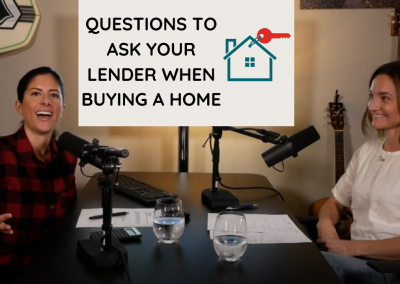If you’re a real estate investor you know that the real work of your job comes at the negotiation table. Just as it has been for people haggling back and forth for thousands of years on the price of a good, service, object, or plot of land, there’s an art to the deal that is never quite the same for any two people or any one transaction.
A good negotiator never relies on just one strategy. If you’ve been in the business of deal-making for anywhere from a week to a year, you know that customers come in all shapes and sizes. Some will agree to one price and then decided against it 24 hours later.
Some clients will agree to the first thing you offer because they’re so motivated to get their money and get out of the house; others will negotiate from thousands of dollars down to singletons just because their ego, their upbringing, or both, won’t let them not do everything in their power to get the best deal possible.
When you’re dealing with cash buyers, motivated sellers, or bank officers whose job it is to mitigate loss, there are particular nuances you can look for to see what kind of person you are dealing with, and more importantly, what their motivation is. You can do this by picking up on their social cues, by letting them speak first, and by taking note of their body language.
From there, you can go with one of these five tried and true strategies to gain the upper hand and conduct a fair negotiation that has both parties feeling like they’ve come out the winner. Remember, these aren’t strategies where you can just ‘wing it’.
You need to hone your skills by practicing these techniques either in front of the mirror, with a friend or family member, or with coworkers who can act as a sounding board for what works and what doesn’t. A class or two of psychology doesn’t hurt either.
No matter what strategy you choose to employ, remember to be authentic, be honest, and be flexible. If it’s obvious in the first five minutes that a strategy is not working, let go of your pride and switch to one that does.
When They Say Take It Or Leave It
You’ll get this a lot from real estate agents because they feel comfortable projecting the image that they are so successful they can afford to walk away from this house. They want to bully you into believing it’s an ultimatum to get as much money for their client as possible; after all, they’re making 3% of that sum at least!
You have to redirect their offensive with a phrase like “We might be able to meet that price if …” and give them some conditionals, like help with repairs. If it’s a huge margin between your price and their offer, you can also tell them the truth and say you’ll have to run the numbers and get back to them. The last thing you want to do is get into a back-and-forth of numbers on the phone. The “take it or leave it” agent wants to agitate you into a wrong decision.
Good Cop, Bad Cop
You see this mentality a lot with bank loss mitigators. First, they’ll come off all bluster and bravado about what they’ll give you, and that’s it. It’s a test. If you come across as weak or not confident, they’ll run circles around you, lowball you, and take an early lunch to celebrate. You have to go into these encounters confident and well-informed.
Even more important, keep calm and speak in the same tone of voice whether they are badgering you or trying to flip the switch and become your best friend. The bank is a position of power, but only to a degree. That loss mitigator has a number that he’ll settle for, but the higher above that number he can go, the better he looks in his employers’ eyes. Don’t let them get to you.
Try and establish a rapport, whether it’s a joke about the commonality of the market, the local sports team, the weather if you both have children, whatever it takes. When the loss mitigator can start seeing you as a person instead of a number, that’s when they’ll start looking to make a deal.
The Alternative Close
When you give people a choice between two options, especially when dealing with money, they naturally feel like there’s one they can pick to give themselves an advantage and “win” the negotiation. If you’re dealing with a cash seller, you can offer them less money overall but all of it in cash up front; or deliver them more money but spread out in payments over two years.
If the seller is strapped for cash, they’ll likely take the money upfront and think they pulled a fast one on you; even though you’re a long-term investor who just made yourself a tidy profit and saved money over the next two years.
Be a Problem Solver
People don’t just sell their homes on a whim; they are looking for a solution to a challenge they are facing. It might be that they are moving to a new city and need to sell their current property; perhaps a death in the family has initiated the sale of a house, or it could be that they need money and their home is their best asset. Understanding the needs of the seller is the best way to build a relationship with them.
Connect with the seller by putting yourself in their shoes and using empathy to share in their problem. Ask optimistic questions about what they want out of the transaction and what the next phase of their life is. Make the sale about them and their plans, not about what you’re planning on doing with the home once you acquire it.
There will be plenty of emotions involved with this kind of seller. Use relatable, authentic stories to connect to the buyers and make the transaction one about feelings, not dollars and cents.
Fight With Facts
When an aggressive seller or his or her agent is insistent on you meeting them at a price higher than you are comfortable with, use facts and figures to make your case.
Start with comps in the area. No two houses will ever be the same, but if enough comparable properties are going for $250,000 and the seller’s agent is asking for $325,000, you’ll have a significant leverage tool. Other great statistics to bring a price down include:
Crime Statistics For The Area
The more crime, the lower the price. If need be, go digging on local media websites to find stories about crime in the area, print them out, and bring them to the negotiation.
School Ratings
If the area’s schools have less-than-spectacular reviews and ratings, come armed with how they match up against surrounding school districts. If the schools aren’t tip-top, they’ll be less chance of selling or renting it to a family.
Distance From Shopping
Use Google Maps or take the measurements yourself. If the house is 20 minutes from the nearest grocery store, that makes a difference.
Distance From Business Centers
If a person buys the house who lives in the city’s downtown area, will it take them 20 minutes to get on the freeway and get to work or 1-1/2 hours?
Again, this can either be done digitally or with some legwork of your own, but the more hard, provable facts you can bring to the table, the more the seller’s price will diminish.










